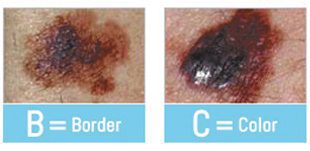By Heidi Smith, Contributor


Sovi Joseph, M.D., is a board-certified gastroenterologist with over 40 years of experience specializing in gastroenterology, including treating many patients with ZD.
Based in Port Charlotte with ShorePoint Medical Group, Dr. Joseph specializes in gastroenterology, internal medicine, and geriatric medicine. He is a fellow of both the American Gastroenterology Association and the American Society of Gastrointestinal Endoscopy. Dr. Joseph performs minimally invasive endoscopic procedures at ShorePoint Health Port Charlotte, where he is medical director of the hospital’s Center of Excellence in endoscopy.
Q. What is ZD?
A. Your esophagus is basically a tube between your mouth and stomach. With ZD, the muscle at the upper part of the esophagus becomes weak, allowing a pouch to form. The pouch catches what you swallow, instead of allowing food to travel normally to the stomach. This can lead to a choking sensation that may cause you to regurgitate or aspirate particles into the lungs. The latter can lead to pneumonia, which can be dangerous.
Q. Who is at risk for ZD?
A. ZD occurs most often in older adults over the age of 60. It’s uncommon, but it happens more often in men than women.
Q. How do you diagnose ZD?
A. I conduct a thorough examination of the patient and listen carefully to the patient’s description of symptoms. People with ZD report that they frequently choke while eating – that is the most common symptom. In my opinion, the most effective way to diagnose the condition is with a barium dye X-ray. The patient drinks the dye solution, and the X-ray makes the dye “light up” wherever the fluid goes. With ZD, we will see the fluid pool in the pouch.
Q. What are treatment options?
A. When ZD is symptomatic with choking, surgery is the only treatment. Traditionally, the surgery was done through an incision in the neck, but that requires cutting through muscles and can risk damage to the vocal cords. With today’s minimally invasive endoscopic approach, we can avoid the neck incision entirely. We guide the flexible tube to the affected area and use a tiny needle inserted through the tube to cut away the muscle between the esophagus and the pouch, eliminating the pouch.
Q. Does the procedure require a hospital stay?
A. For most patients, it’s a 20-minute outpatient procedure under general anesthesia. They usually can go home the same day and resume eating the following day. For people who have dealt with choking, regurgitation, and aspiration into the lungs, the results from this procedure are immediate and life changing.
Q. What would you advise someone who thinks they may have ZD?
A. Find a doctor who has extensive experience treating the condition and who knows the latest treatment techniques. ZD can be serious – even life-threatening – so it’s important to seek proper care.
Patient results may vary. Consult your physician about the benefits and risks of any surgical procedure or treatment.
Shore Point Digestive Care
(941) 267-4161
 Southwest Florida's Health and Wellness Magazine Health and Wellness Articles
Southwest Florida's Health and Wellness Magazine Health and Wellness Articles

